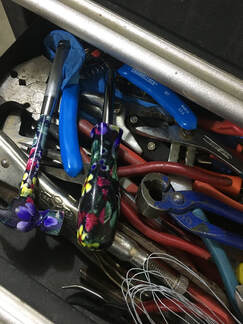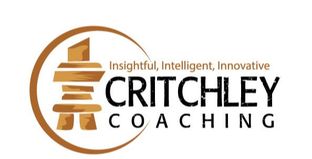
If I said that Jim loves tools, it would be an understatement. He browses the flyers arriving at the front door, and finds that his car steers into a Canadian Tire or Lee Valley store in much the same way mine can’t seem to go past a Baskin Robbins Ice Cream shop. There is no cure. I’m learning to embrace it (or at least starting to appreciate some of the hidden benefits of this terrible affliction of tool collecting).
Last week, late one morning when Jim and I were both working in our home offices, our front door bell rang. Over the past 6 months, we could count on one hand the number of times this has rung. Suffice it to say, it immediately captured both our attention. Jim got to the door first and upon opening it, found our across-the-street neighbour standing at the bottom of the steps. We do not really know this neighbour. We have said a friendly hello to her and her husband when we have walked past their house, and once we even stopped for a little chat. Other than that, we don’t know them at all. For the purposes of this blog, let’s call them Ellen and Bob. We do now know their actual names.
Jim didn’t have to dig too deeply to figure out the purpose of the call. Ellen quickly explained to Jim that they were having a problem with squirrels at their home. With the squirrels having decided to take up residence underneath the front porch, Ellen, worried they would eventually make it into the house, had decided to install some wire netting that would make it tough for them to find a comfortable home there. As she tried to figure out a solution, she found herself at the local Home Depot where the sales person sold her some chicken wire and a tool to cut it.
She said she had been working on it all morning and she finally thought she needed to ask for help. She’d seen Jim outside working on various projects and thought he might be able to lend her a more appropriate tool and give her some tips for the job. She said she broke down and asked when her hands were just too sore to continue. She also mentioned her husband was mortified that he did not know what to do either.
When she mentioned her sore hands, Jim looked at them and couldn’t believe his eyes. Her hands were cut up and bruised from trying to cut the wire with the tool she’d been sold. Jim’s comment? ‘I can help. Meet me in the garage.’
Jim immediately knew of a much more effective tool he had that she could use, and amazingly he knew exactly where it was located in the garage! He disappeared from home for about an hour and when he returned, he was able to report she now had a good handle on the tool he suggested and was well on her way to finishing her repair. He was less than amused that she had been sold not only a useless tool, but one that was more harmful than good in this circumstance.
I’m not a gadget or tool person. My collection is small and purposeful. If I had a theory about physical tools it would be if I’m not going to use it regularly, I likely don’t need it. However, as the events with our neighbour, Ellen, unfolded, I had time to think about other tools we use in life. Tools I do have.
Each of us has a different assortment of tools, an additional collection to that of our physical tools. We have tools to help us navigate difficult personalities, tools to help us get our way, tools for relationships, tools to help us with resilience, tools for planning and for setting goals. Often, we use the right tool for the situation we find ourselves in, and we can successfully navigate our way forward. However, sometimes we find ourselves in a situation like Ellen’s. We try to solve the problem at hand with the closest tool nearby. We forget there are other tools to choose from. When we don’t have success, we just forge ahead, with more force and determination. We may not have chosen the right tool, but we’ve chosen a comfortable one, and one we are used to. We can end up doing more harm than good.
Each of us is resourceful, capable and whole. We have all the tools we need to live our most successful and satisfying life. Ellen and Jim’s interaction taught me a few things about tools. The tool Ellen had from the store was of no use to her. Someone else thought they knew what she needed and imparted their ‘help’ on her. However, in her own tool box, the one she has clearly filled throughout her life, she had exactly the right tool, and she knew exactly how to use it. She knew she needed help, she knew where to find help, and she knew she had to override both the probable inner voice chiding her for wanting to knock on our door, and the very real voice of her husband who was simply feeling embarrassed. Ellen had the perfect tool of resilience and she used it.
Jim too has a box of tools he’s collected over the years. He also knew just what tool would be most effective that day. Of course, he knew which garage tool would be most helpful to Ellen and he loaned it to her. He also had some other tools he used. He told Ellen how delighted he was she had come across the street to ask. He told her the problem would be easy to fix. He went across the street to her house and showed her what to do. I know Jim would have loved to have just done the job for Ellen. He could easily have taken over and demonstrated his skill, of which he has plenty. However, Jim recognized this wouldn’t have been the right tool to use at the time. Ellen had already been sold the wrong tool without her even knowing. The last thing she needed was for someone else to undermine her. Jim, understanding that Ellen really needed to be able to complete this job on her own, stayed long enough to show her how to use the tool properly and safely, explained how and what to do, watched to see she could competently do it, and then left her to finish the job she clearly wanted to do on her own. He did not take away her power or her confidence. Instead, she gained in both.
Each of us naturally reach into our toolboxes many times each week. Sometimes, like Ellen, we grab the wrong tool. We use stubbornness when patience would better serve us. We use patience when instead we could advocate for ourselves. We remain victims when instead we could draw upon our ability to use honesty about ourselves and our fears. Sometimes, like Ellen, we need to re-evaluate, return the tool that is not best for the situation, and consciously choose one that serves us best.
My inquiry for you this week is, ‘What tool will serve me best?’
Elizabeth is a certified professional Leadership Coach, and the owner of Critchley Coaching. She is the founder and president of the Canadian charity, RDL Building Hope Society. She works with corporations, non-profits and the public sector, providing leadership coaching. She creates and facilitates custom workshops for all sizes of groups. She has particular expertise in facilitating Strategic Plans for organizations. Contact Elizabeth to learn how to choose the right tool for the job.


 RSS Feed
RSS Feed